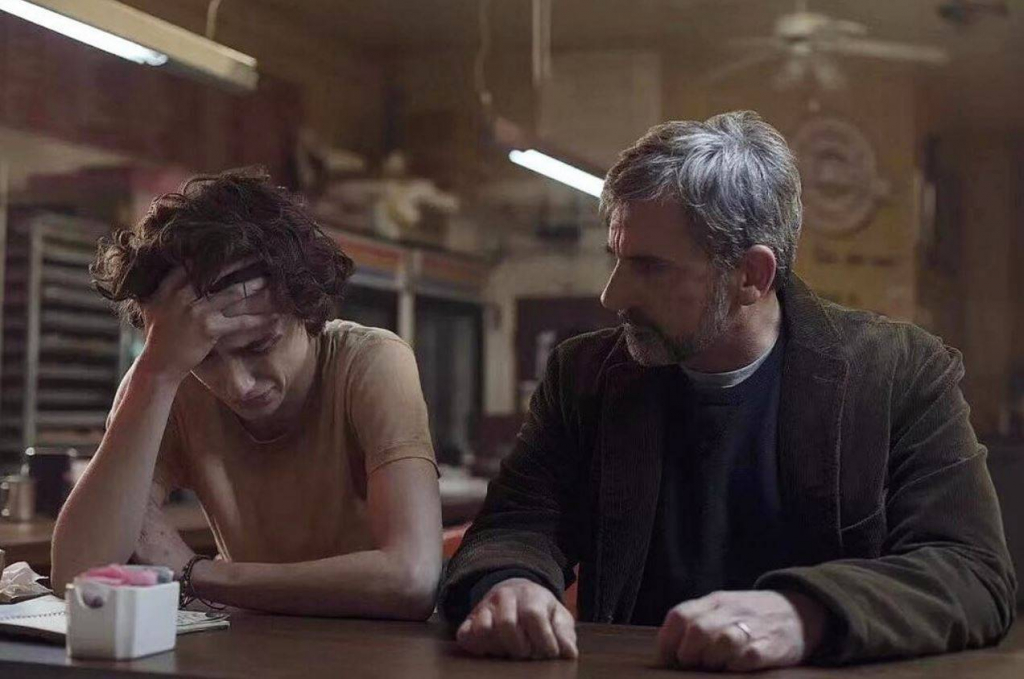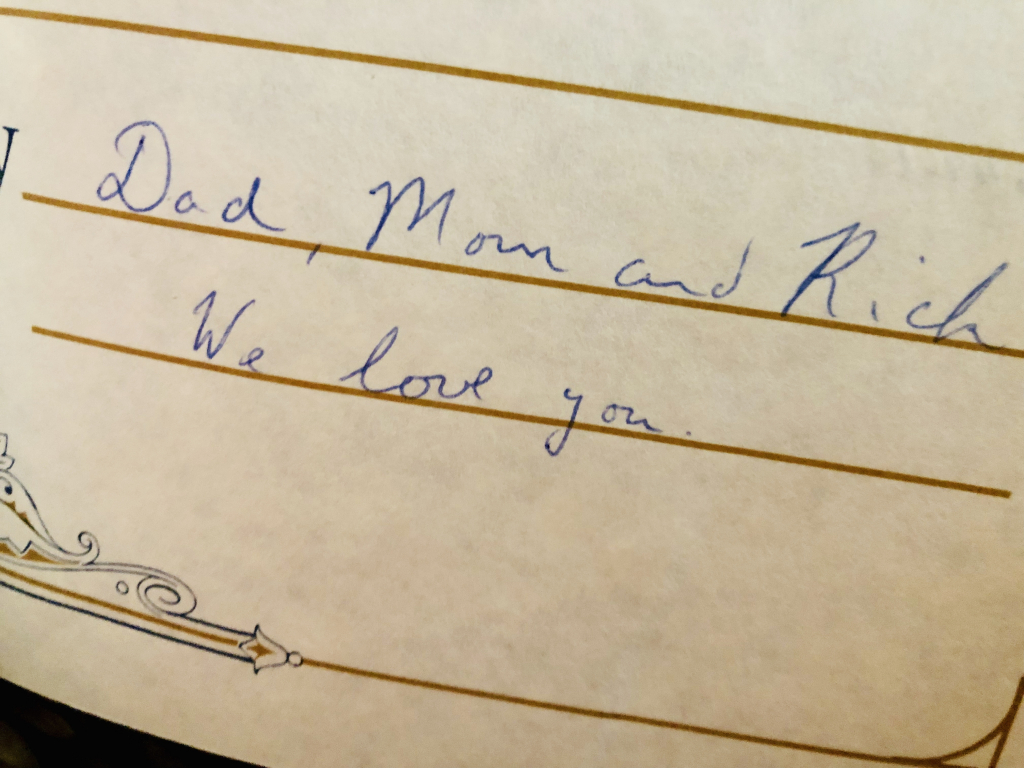by WILL FOLKS || A buddy of mine who follows Clemson University’s high-flying football program shared some incredibly sad news with me this morning … news of an ongoing personal tragedy.
As it happens, I get news like this a lot. In the line of work I have chosen, tragedies – be they individual, communal or national – are commonplace. So are the blame games that follow them. I am usually dulled to all of it. Professionally detached. Clinically removed.
Also, like you, I’m usually sick of the “all in” reactions on social media – including some of my own reflexive thinking on various matters.
But for some reason my friend’s message got through to me … and “got through” in a very real sense, not in the way many of us have received something and replied “interesting” when in truth we are not at all interested (admit it – you’ve done it too).
There is a perpetual buzz to what I do. A constant, cacophonous matrix of communication. But all of the noise with which I surround myself cancelled out as I thumbed through my @FITSNews Twitter direct messages and saw the shaded incoming square … sitting at a stoplight on a return trip from a business meeting early Saturday.
“You see this story/ podcast?” my buddy asks.
This missive hits its mark. A penetrating arrow, I can actually hear the air parting around it as it swooshes toward the center of me – deftly navigating the clutter of email inboxes, iMessages, snaps, tweets and the millions of other ways I interact with people in my work. It thuds into my chest.
I’m hit.
It’s a gorgeous November day, by the way. Light. Cloudless. The dictionary definition of “football weather.” It is one of the first fall weekends with a real nip in the air and the emergence of vibrant colors which are beginning to consume the canopy of trees surrounding my family compound in Lexington County, South Carolina.
Cold will claim these leaves soon … leaving most of the trees on the property naked and exposed until spring, when a new canopy of near-neon green will emerge to re-embrace our family’s modest, suburban homestead.
The fall colors remind me of the passage of time, of trips taken with my family as a small boy – often traveling to football games in neighboring states. For some reason, today I specifically reminisce on a trip to Blacksburg, Virginia in the fall of 1986 – the year before Virginia Tech hired Frank Beamer as its football coach. My beloved University of South Carolina Gamecocks tied the Hokies on that crisp, cloudless autumn day – 27-27. Two years later, they would beat Beamer on the same field – 26-24.
Good memories. That day was like today.
(Click to view)
(Via: Piviso)
And today is a beautiful day. The kind of day that reminds us how good – and how fleeting – it is to be alive. To have a heartbeat. To draw breath. To laugh. To love and be loved.
Or maybe it is all just context? It rained (and in some places flooded) in my neck of the woods for several days earlier this week, so the lifting of the clouds and the blooming brightness of autumnal oranges, reds and yellows is perhaps providing me – and presumably many others – with a dispositional upgrade. A mood reboot.
What could go wrong on a day like today?
Right, the tragedy …
Ron Morris, a former sports columnist at The (Columbia, S.C.) State newspaper, has gone public with some incredibly difficult news. He has become addicted to opioids following a battle with chronic back pain.
Morris was a guest on this week’s Clemson Dubcast, hosted by Larry Williams of Tiger Illustrated.
“Blue skies for the first time in seemingly forever,” Williams noted at the outset of his broadcast.
He is feeling what I am feeling … that mood reboot. At least until he turns to his guest in the studio.
Morris, our readers will recall, made no shortage of enemies during his tenure covering Palmetto State sports – most notably former University of South Carolina head football coach Steve Spurrier.
Spurrier hated the columnist so much he even took a shot at him as he resigned midway through the 2015 football season.
“I really only had problems with one guy, but he’s gone now, so at least I outlasted him,” Spurrier told WIS TV 10 (NBC – Columbia, S.C.).
That is true … albeit barely. Morris lost his job in May of 2015 – a casualty of one of the many corporate purges that have left The State a shadow of its former self. Spurrier? He officially surrendered in October of 2015, although as we pointed out at the time he threw in the towel well before then.
As far as his loathing of Morris was concerned, though, Spurrier was preaching to the choir. Legions of Gamecock fans also hated “mo-Ron,” referring to him exclusively by this derisive nickname. So visceral is the contempt for Morris among the Gamecock faithful that the schadenfreude meter on this story is probably going to be through the roof.
Even after people realize what the man is up against …
Morris is doing freelance work now – including a recent piece for The (Raleigh, N.C.) News and Observer on Clemson’s Dexter Lawrence – but that’s not why he appeared on Williams’ podcast.
“I’m kinda trying to spread the word about what’s happened to me because if I can help someone else avoid what I’ve been through then I’m more than happy to tell the story,” Morris said.
Good. Because what happened to Morris is happening to millions of other Americans … probably even a few of you who are reading this article.
“I had back surgery on October 5th after four months of severe back pain that entailed taking 10-12 painkillers a day,” Morris told Williams. “The back surgery went really well – I have no pain in my back or any part of my body anymore – but in taking the painkill(er)s, I developed an opioid addiction. So I’m basically a drug addict now, and it’s going to be a long process to wean me of these drugs. But I’m hoping that in telling my story I can relay to people that I might be the perfect example of ‘it can happen to anybody.'”
(Click to view)
(Via: Getty Images)
Morris’s drug of choice? OxyContin, which he was prescribed to ease his back pain.
After his successful surgery, though, the columnist realized he had become addicted to the medication. He began to experience serious withdrawal symptoms in the hospital – referring to the day after his surgery as “the worst day of my life.”
“My body was shaking uncontrollably, I got myself in a fetal position, my body was freezing … my body wasn’t functioning properly without the drugs,” he said.
Now he is trying to kick the habit – along with an estimated two million other Americans.
“It’s terrifying and a reminder that a lot of addictions to opioids don’t start with abuse,” my buddy observed in passing along the story.
That is terrifying … especially to me.
And that terror is why his message got through to me.
First, the numbers: According to the U.S. Centers for Disease Control and Prevention (CDC), “from 1999 to 2016, more than 200,000 people died in the United States from overdoses related to prescription opioids.”
The epidemic is ramping up, too, as “overdose deaths involving prescription opioids were five times higher in 2016 than in 1999,” according to the CDC.
“Every day, more than 115 people in the United States die after overdosing on opioids,” the National Institute on Drug Abuse noted in its latest update on these prescribed killers.
The site estimated the economic loss associated with the epidemic is costing our nation $78.5 billion a year, “including the costs of health care, lost productivity, addiction treatment, and criminal justice involvement.”
Unreal … and that is just one drug.
But those are not the real costs of addiction.
(Click to view)
(Via: Amazon Studios)
At the suggestion of another friend, I recently finished the book Beautiful Boy by David Sheff – the movie version of which is currently playing on the silver screen. I won’t ruin the ending, but as you might imagine this narrative of a father coping – or trying to cope – with his son’s addiction to methamphetamine and other drugs is quite the rollercoaster of hope and hopelessness.
“My addiction to his addiction … became far more compelling that the rest of my life,” Sheff wrote. “How could a child’s life-or-death struggle not? Now I am in my own program to recover from my addiction to his.”
In other words, for the countless millions of addicts out there … there are countless millions of addicts whose drug of choice is their loved one’s addiction.
The scariest part of Sheff’s narrative? How it conditions the family members of drug abusers to eschew the very thing they need to keep going.
“We are terrified of optimism, fearful that it will be punished,” Sheff continued. “It is safer to shut down.”
I recall my own life again. It is the winter of 1992-1993. I’m eighteen, a senior at The Hill School in Pottstown Pennsylvania. Except this winter I’m not at school – I’m at a drug and alcohol treatment facility in nearby Wernersville, Pennsylvania. Apparently, “they” had to get me someplace close. Quick. There was an intervention? I think. My dad drove me? Maybe. All I know in that moment is that the shower in my room is padded … presumably so I don’t bash my head against hard tiles.
I am feeling the same withdrawal Morris feels.
Nothing has ever hurt like this. Ever.
I want to die.
Why am I here? Because I am an alcoholic and a drug addict.
The thing that saves me – oddly enough – is the scent of the soap in the shower. It is plain Dove bar soap. Lily white. The kind they made before all the colorful bottles of moisturizing body wash.
I smell it and – like that (snaps fingers) – recall being in the bathroom of my grandmother’s old house on 62nd Avenue North in Myrtle Beach, S.C. My family would spend months on end in this home during the summers when I was growing up, and this seemingly random olfactory cue permits my drug-addled mind to drift back to that place.
I remember the me I used to be.
Suddenly I am smelling Hawaiian Tropic oil. I am feeling the rush of water surrounding me as I bodysurf on a wave. I am tasting fried scallops, shrimp and oysters at an all-you-can-eat buffet in Calabash, N.C. I am listening to Harry Caray on WGN from my grandmother’s RCA television, calling a high pop fly that “wouldn’t be a home run in a phone booth.”
I am remembering life. Remembering who I was before I allowed these substances to abduct me.
Heroin. Cocaine. Meth. Acid. Mushrooms. Marijuana. Alcohol. You name it, I’ve done it. You name it, there’s a better than average chance I have been addicted to it at some point in my life.
My drugs of choice have varied over the years – from speedballs to dark liquor, from fat joints to foil-wrapped tabs – but at the root of all of it was the addiction. It was the need. The high. The powerlessness. The escape. The searching. The insecurity. The hurt. The hate.
The hope … turned hopelessness.
I don’t know why it started … but I know I couldn’t stop. Nor did I stop … for many, many years.
On February 14, 1993 my family arrived for a visitation at the Wernersville facility where I was enrolled. They brought a Bible with them. I still have it. It is deep maroon in color. Leather bound. It remains the nicest Bible in my house (and I married the daughter of a Missouri Synod Lutheran pastor, so we have no shortage of scriptures).
There are words of life and hope throughout this Bible … eternal wisdom literally oozing from its pages. But I will forever remember this Bible not for the inspired words of the psalmists, prophets, apostles (or even for the red-lettered words of Jesus Christ) contained therein … but for the handwritten inscription on the front page from my father, mother and younger brother.
It was presented to me by “Dad, Mom and Rick.”
Below that …
“We love you.”
(Click to view)
(Via: Will Folks)
That was all they said … probably because that was all they could say.
They still love me, too … although I will never know why considering everything I put them through.
I finally got sober on June 16, 2006 – a little over a dozen years ago (and a little more than a dozen years after I left that rehabilitation facility in Pennsylvania). It was hard work. Day-to-day, then week-to-week, then month-to-month. Brick by brick.
I did not do it alone. Believe it or not, a guy many readers know well – Rick Quinn – was the first one who helped me on the journey. I have gone up and down with Rick in recent years, but I can honestly say whatever his faults may be – the man helped save my life.
Usually, I don’t think about being sober. I don’t want to say it has become easy for me (easy is not the right word), but somehow over time I have conditioned myself to a life without drugs and alcohol – absent the help of a program or even a sponsor. Somehow, I have reached a point where sobriety has become essentially autonomic for me.
But that involuntary sobriety I practice, and the accompanying pride of accomplishment, is precisely why the message from my friend so desperately needed to cut through the clutter and hit its mark today …
Ron Morris’ story – and David Sheff’s story – have served as jarring reminders for me. They have warned me in no uncertain terms: You did not dodge a bullet, you are still dodging bullets.
You did not survive, you are surviving for the moment.
The moment I forget that, I am a dead man.
Yes, it has been more than twelve years since I have had a drink or used drugs … but …
… yeah …
… I needed desperately to remember that this sentence could end any number of ways for me at any given moment. And all but one of those ways is very, very bad.
I have not been cured because there is no cure. There is no past tense when it comes to this disease. No matter how many days, weeks, months or years we get under our belts, addiction can wipe every last one of them into oblivion in a split second. It preys – descending upon us at a moment when we least expect it, leveraging a weakness we may not have even known was there.
It coaxes us. Confuses us. Lies to us. Teaches us to lie to ourselves.
Addiction is insidious. It steals us from ourselves … robs us from those who love us. And robs them from us. And it will never stop.
Morris and Sheff reminded me of something else, though … something other than the very real danger that still exists for me as an addict and alcoholic. They reminded me of my duty as someone who wields a microphone in the marketplace of ideas.
Whether I wanted to or not, I had to write this column. I had to put my own name on it (and put my own story in it) – even though I began the day with a million and one other things on my plate and nowhere near enough time to get them done.
But those tasks will be there tomorrow … this had to be written today.
I don’t know why … it just had to. Maybe someone reading this needed to see it? I don’t know.
[su_dominion_video_scb]As regular readers know, my news outlet has spent the last few years editorializing in support of the decriminalization of drugs for recreational purposes. Not just marijuana, but also other drugs – including the dangerous substances that nearly destroyed my life (and are destroying the lives of countless others in my country).
Why do I support the free flow of such poison? Because I believe in individual liberty … including the liberty to hurt and kill oneself. Which is what addiction really is: Killing oneself.
We cannot legislate against self-hurt any more than we can legislate against hate. Or lust. Or fear. Or a host of other self-destructive behaviors.
Like it or not, in a free society people must retain the right to do horrible things to themselves. The key is recognizing when those behaviors begin to infringe upon the liberty of others.
Not the feelings of others, mind you … I refer to their fundamental rights.
“It’s my life to ruin my own way,” Morrissey once sang.
And it is … no matter who it hurts (at least up to a certain point).
Over the past year, efforts have been undertaken by a number of different people to amend my way of thinking on this issue. I’ve been invited to countless informational meetings, been shown numerous documentaries, pored through voluminous reports and studied any number of news articles and other pieces of propaganda related to this issue.
I joke with some of my friends that they are giving me the “reefer madness” treatment, but the truth is they have made some very compelling points … and in addition to turning my microphone over to them whenever they want to use it, I have incorporated many of their arguments in my coverage of this issue.
Yet while I have become convicted that I was not seeing this issue as clearly as I should have (which is odd given my history), I have not changed my underlying views.
Aside from the liberty argument articulated above, I remain afflicted by a hyperactive sense of justice. What I mean is: Why demonize and criminalize the pot dealer when we permit the beer distributor or pharmaceutical executive to operate with impunity?
Is one merchant of death better than the next?
No. It must be fair. We cannot be hypocrites.
What is the answer? I do not know.
Just as there is no cure for addiction, there may be no political solution to any of this. There may only be perpetual fumbling, trial and error toward what we hope are better – fairer outcomes for our friends and our future generations. So, as this debate advances at family tables, town halls, county council meetings, state houses and in the halls of congress in Washington, D.C., we should not despair if the answer seems elusive if not altogether unattainable.
It is elusive. And it may be unattainable.
What defines us is the striving, not the solution.
In the final analysis, we are responsible for ourselves and those entrusted to our care … we cannot change other people, and accordingly we cannot change outcomes. And that, ultimately, is the most sobering reality for anyone dealing with an addict, or anyone dealing with the inherent unfairness of the broken world in which we live.
I wish I had better news. I wish it was all clearer. But it isn’t. Thank you for hearing me out, though, and thank you to everyone who loves even when it is not deserved. Thanks to everyone who tries.
That is all we can ever really do.
Thank you …

Will Folks is the founding editor of the website you are currently reading.
***
WANNA SOUND OFF?
Got something you’d like to say in response to one of our stories? Please feel free to submit your own guest column or letter to the editor via-email HERE. Got a tip for us? CLICK HERE. Got a technical question? CLICK HERE. Want to support what we’re doing? SUBSCRIBE HERE.
Banner via iStock




